Not in the stats, women are left unseen in city’s homelessness
The Tribune’s Daisy Clague joins council teams and charities on the streets as they look out for women who are not getting the help they need
Friday, 25th October 2024 — By Daisy Clague
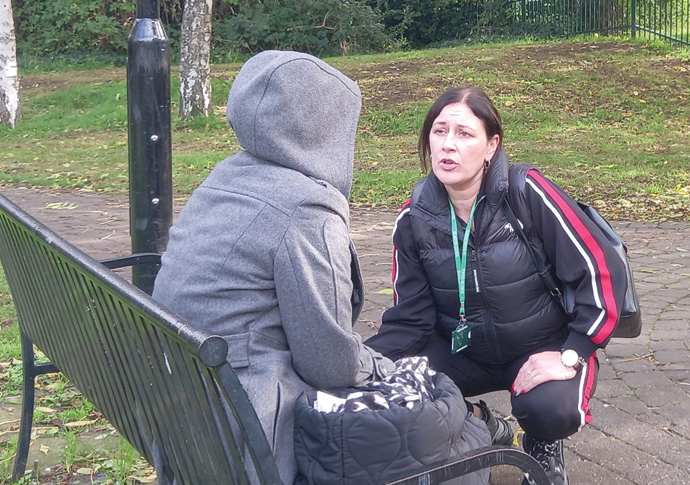
Cheryl Vaughan, complex needs navigator at Islington Council
WOMEN rough sleeping are more “hidden” and “transient” than men, Islington charities have warned, meaning they are left out of homelessness statistics and sidelined by policies and services.
The Tribune joined outreach workers from Islington Council and drug and alcohol support service Better Lives as they took part in a week-long national Women’s Rough Sleeping Census.
Now in its third year, the census was set up by Islington-based charities Solace Women’s Aid and Single Homeless Project to address their belief that women were being underrepresented in the government’s annual “snapshot” of how many people are sleeping rough.
“Women are not being seen and they’re not being supported,” said Solace’s Rebecca Goshawk.
“Women will be much more likely to sit in a McDonald’s or move on a bus all night than be bedded down, which means they are not being counted when the government does rough sleeping counts.”
Currently, people have to be “bedded down” – meaning they are sleeping outside or visibly preparing to do so – to be designated as rough sleeping under the government’s definition and to access certain services.
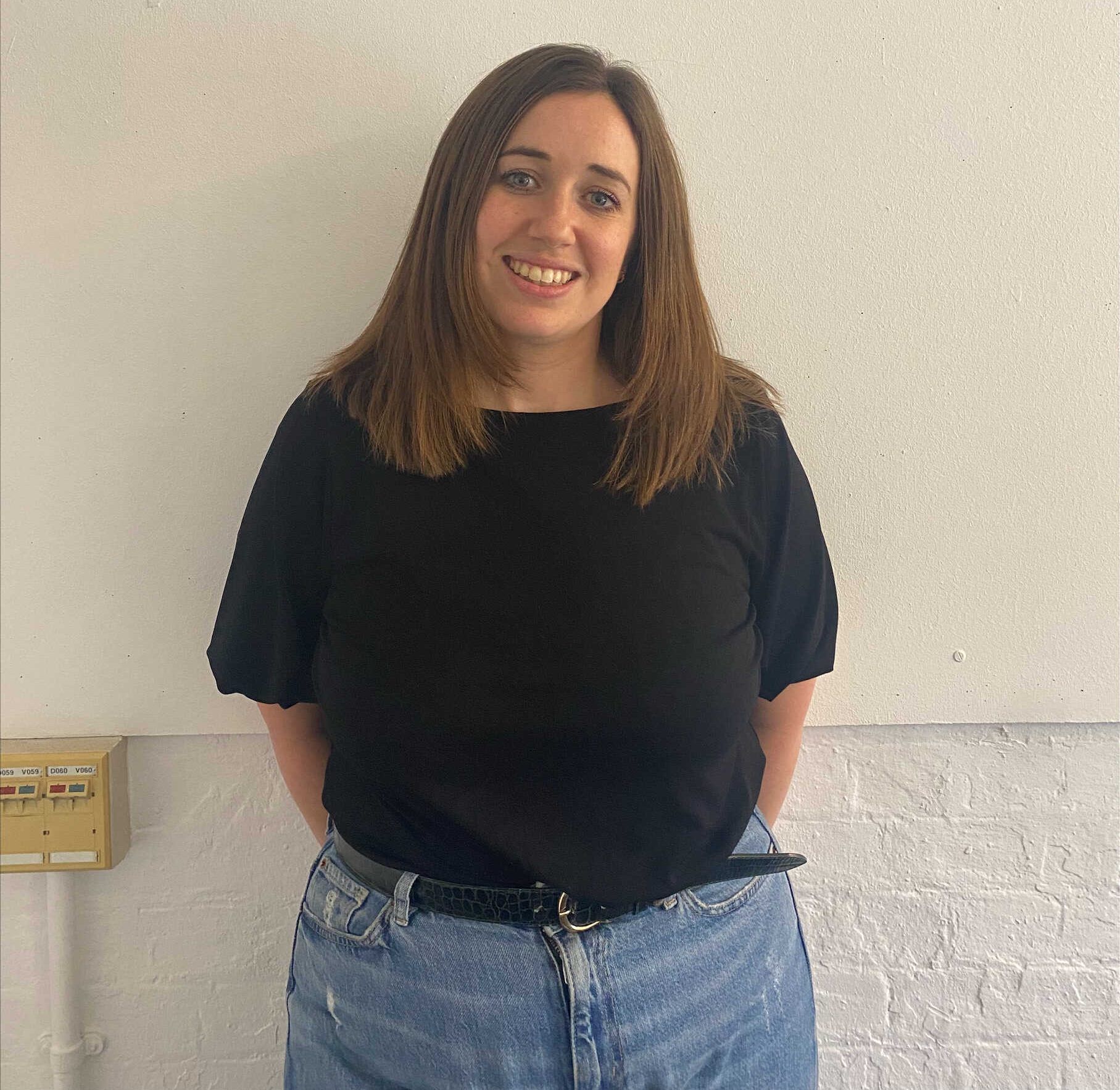
Rebecca Goshawk from Solace Women’s Aid
“Women rarely sleep like that,” Ms Goshawk added.
The census is carried out across London and beyond, and involves local authorities looking for women in sheltered locations like trains, stairwells and A&E waiting rooms, or simply walking around all night.
The goal is for a more accurate picture of how many women are sleeping rough, to shape services better designed to meet their needs.
The 2023 Census in London identified 391 women sleeping rough compared to the government’s own data, which found 159.
On the outreach shift attended by the Tribune, we spoke with four women over the course of three hours – a high number for a Monday morning, according to women’s complex needs outreach worker Maria – who we are not identifying in full due to the sensitivity of her role.
She said: “Women are very hidden and it can take them a long time to surface.
“It often happens that women have never had contact with services, although they might have been sleeping rough for a long time.”
She added: “A lot of women don’t trust services – they could have grown up in care or had their children removed – and they might just see me as part of that system, so the hugest part of the role is building relationships.”
Maria has worked at Islington Council since 2020, supporting women with multiple unmet needs that can include housing, accessing benefits, domestic violence and substance use.
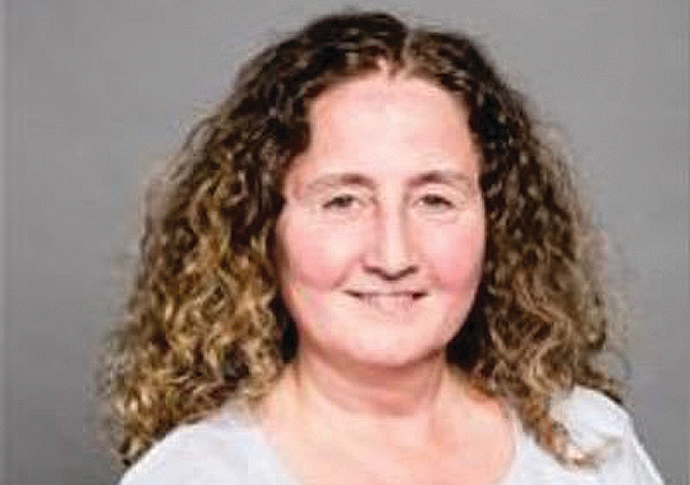
Islington’s housing chief Una O’Halloran
Having previously worked in other boroughs, Maria said Islington’s approach to supporting women experiencing homelessness is “creative” and “tries to give women choices”, even if they can be limited by other factors like a lack of housing.
Islington’s housing lead Labour councillor Una O’Halloran said: “We’re out there talking to women experiencing homelessness, and the whole point is they are not judging people. It’s about: ‘How do we help you rebuild your life?’”
Women suffering from domestic violence are put on a priority housing list, which often leads to them being allocated temporary accommodation out of the borough and away from their support networks.
“It would always be about what is best for that woman and that family, but I’d be lying if I said that every person with DV [domestic violence] could stay in the borough,” said Cllr O’Halloran, emphasising the council’s policy of nobody being moved more than 90 minutes out.
“But we’ve been fighting for it. We are trying,” she added, referencing the fact that Islington has bought back more ex-right to buy homes than anywhere else in the country, which will be used as temporary accommodation for people in urgent need.
If central government is not going to abolish the right-to-buy policy, Cllr O’Halloran said, then rent controls and restrictions on properties left empty would also help address Islington’s housing crisis.
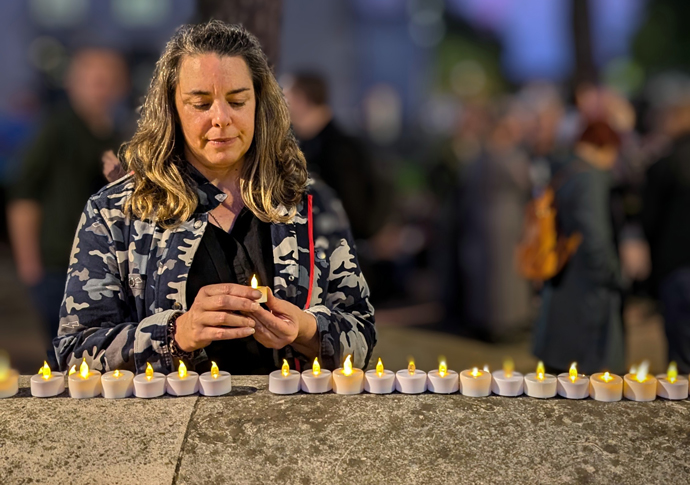
[Lucinda Macpherson]
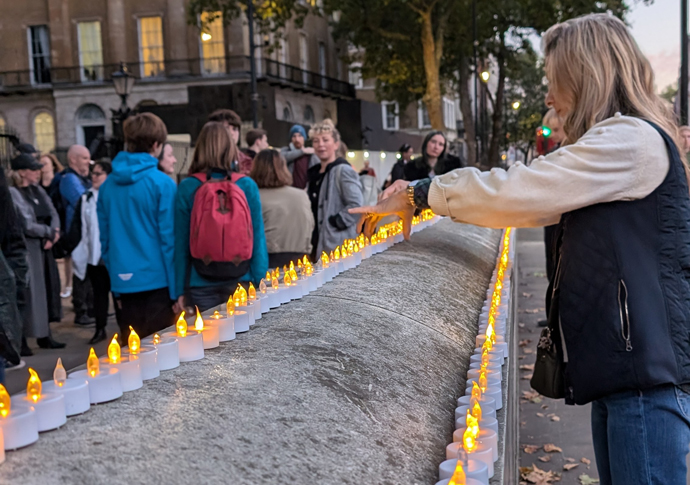
[Lucinda Macpherson]
• ROWS of candles were placed opposite Downing Street last Thursday to represent and remember the 1,474 people who died on London’s streets in 2023. The vigil was organised by the Museum of Homelessness.
Support services
• Anyone in need of housing support in Islington can register for the online housing system, Housing Jigsaw, after which they will be contacted within 10 days by a support officer.
• If you need urgent help from Islington Council, call 020 7527 6371, or – if after 5pm – 020 7527 2000.
• Shelter’s helpline: 0808 800 4444 if you need emergency housing or support.
• 24-hour National Domestic Violence Helpline: 080 8200 0247
• Anyone seeking support for substance misuse can contact Better Lives on 020 3317 7437 or 0794 711 7928, Monday-Friday, 10am-6pm.